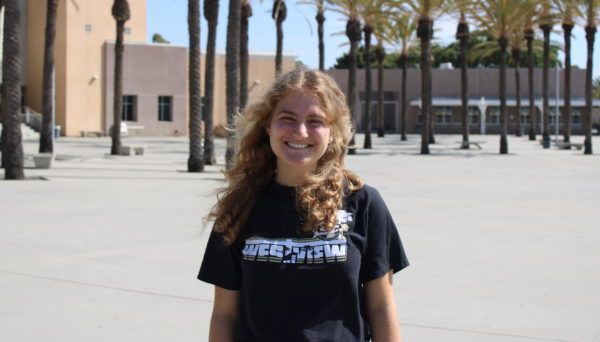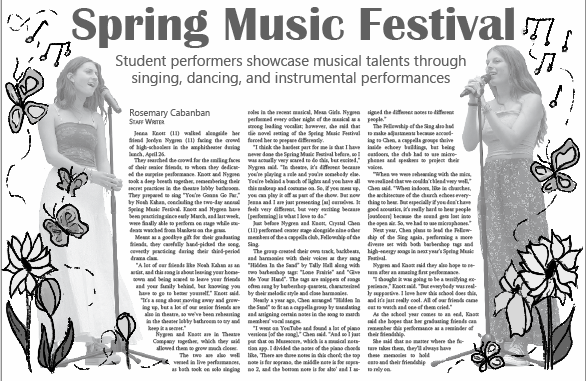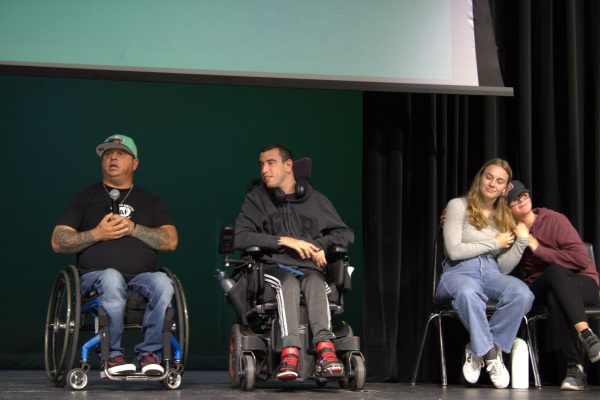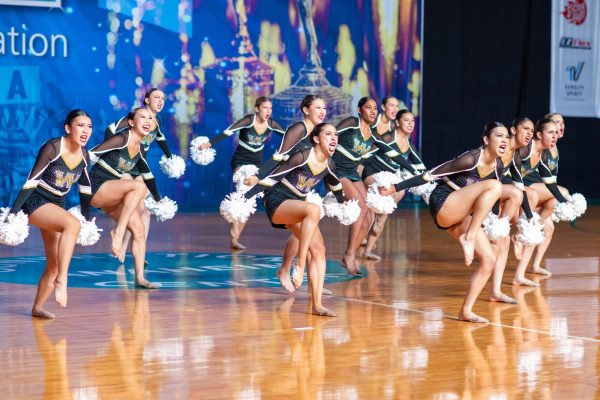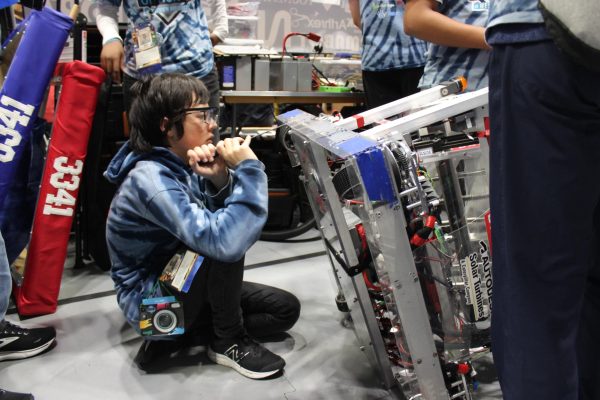ABE hosts panel on environmental careers
May 5, 2023
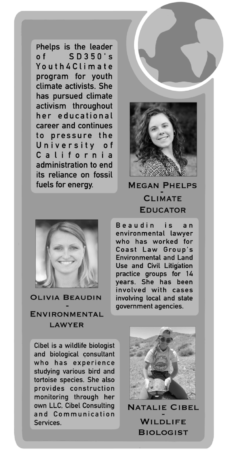
Before Earth Day, this year celebrated April 22, executive members of Advocates for a Better Environment (ABE) Club saw an opportunity to spotlight future career paths in the environmental field. Co-presidents Grace Mordhorst (12) and Bella Santos (12) organized a panel of speakers working in different environmental jobs to speak about their experiences in a Zoom meeting during lunch, April 19.
Students gathered in science teacher Shannon Kreamer’s classroom for the meeting with three environmental professionals. During the Zoom, students were able to ask questions about the speakers’ professions.
The speakers included Livia Beaudin, an environmental lawyer working for Coast Law Group LLP; Natalie Cibel, a wildlife biologist and founder of Cibel Consulting and Communication Services; and Megan Phelps, a climate activist working for the nonprofit organization San Diego 350 (SD350) as the director of the Youth4Climate program.
All of the speakers were chosen based on their expertise in various fields related to preserving the environment and their personal connections Santos and Mordhorst. Santos reached out to Phelps after meeting her as an intern in the Youth4Climate program.
“I did an internship under [Phelps] in spring 2021,” Santos said.”My position was the media fellow for Youth4Climate so I ran our Instagram page, TikTok page, wrote newsletters, and did flyers.”
Santos also reached out to Cibel due to a personal connection. They’d met at an environmental summit for leaders in activism.
“I met [Cibel] at the San Diego Environmental Leadership Summit, where I spoke on a youth panel and talked about my experience in organizing different environmental efforts. She was in the audience and approached me after, introduced herself, and then we stayed in touch ever since.”
Mordhorst invited Beaudin to the panel after specifically meeting her to learn more about her career as an environmental lawyer. Beaudin’s job entails representing clients in legal issues regarding the environment such as coastal land use.
“My swim coach recommended that I talk to his friend, who referred me to [Beaudin],” Mordhorst said. “I did an informational interview with her to learn more about her career because I’m interested in potentially going into environmental law.”
Beaudin originally went to college intending to enter medical school, but later switched to environmental science and went to law school. Santos said she admired Beaudin’s interdisciplinary background, and that it inspired her to consider a similar career path.
“I’m interested in the science side of environmental science, but also policy, so I admire how she took those two paths and [pursued] them together to where she is today,” Santos said.
Mordhorst said having speakers present to the club was intended to expose students to career options in the environmental field, which are more varied than some may expect.
“There’re so many different options,” Mordhorst said. “[For example,] you can go into environmental management, research, education, or activism. We wanted to highlight that there are many different [career] options to help protect our planet.”
The speakers first introduced their careers and told stories of how they’d progressed throughout their career paths, then discussed the best advice they’d been given and the challenges they’ve had to overcome in entering and persevering in the field.
“The story from my Antarctic ecology professor, who taught his course based on his field work in Antarctica studying Adélie penguins, completely inspired my career,” Cibel said. “I encourage [students] to listen to stories from [their] teachers because they can really take you to different places.”
During the panel, Phelps described the realization that she needs to maintain her mental health while working to confront serious issues in order to continue being an effective proponent of change.
“I’ve been coming to the realization that part of the climate movement is about creating the world we want by living in it,” Phelps said. “That’s been something that is helping me stay grounded, create community and balance for myself, and prioritize not burning out since it can be so confusing and easy to get overwhelmed by this issue.”
Santos said this message resonated with her personally, as did Phelps’ honesty about being uncertain with the future trajectory of her career.
“A lot of the stuff [Phelps] has talked to me about personally, but also talked about at the panel, was about resilience and mental health work in the movement, which I think is something that I’ve struggled with before—trying not to burn myself out by trying to do everything,” Santos said. “I appreciated how [Phelps] opened up about her experience of still being early in her career, so not being certain of what path she wanted to take. As someone who is also considering various careers, it was really refreshing to hear that people I look up to can relate.”
Mina Tajbakhsh (12), a member of ABE, attended the panel and said she gained insight regarding a potential future career path as a result of learning about the speakers’ stories.
“I don’t really know what I want to do yet [as a career], but I am very passionate about the environment, so [the panel] gave me more insight on what I could study in the future,” Tajbakhsh said. “I really liked [Phelps’ story], working for SD350, because I’m a people person and I like how she’s able to interact with others and advocate for the climate on a social level.”
All of the speakers discussed hurdles they’ve had to overcome in order to succeed on their career path. Tajbakhsh said she was comforted by their candid descriptions of struggling with the cost of college and the psychological tolls of constantly fighting for change.
“[Cibel] talked about all the ways that you could gain scholarships and grants, which made me feel like I could have more opportunities,” Tajbakhsh said. “All of the speakers had original limitations with what they were trying to pursue, so a lot of the advice was to keep pushing, and I thought that was really empowering. It’s really nice to hear from the perspective of someone who’s done it.”
Despite the struggles of environmental jobs, all three speakers emphasized how rewarding their careers have been as they’ve been able to do work they’re passionate about while contributing to positive global change.
“I keep fighting, because without joining the battle, who else is going to do it if not me?” Beaudin said. “It might seem like all the money and resources [to create change] are with the powerful, but there’s more of us—people who care. I firmly believe that the majority of people want a hospitable planet, to conserve wildlife, and to be able to pass on the environment to the next generation.”


